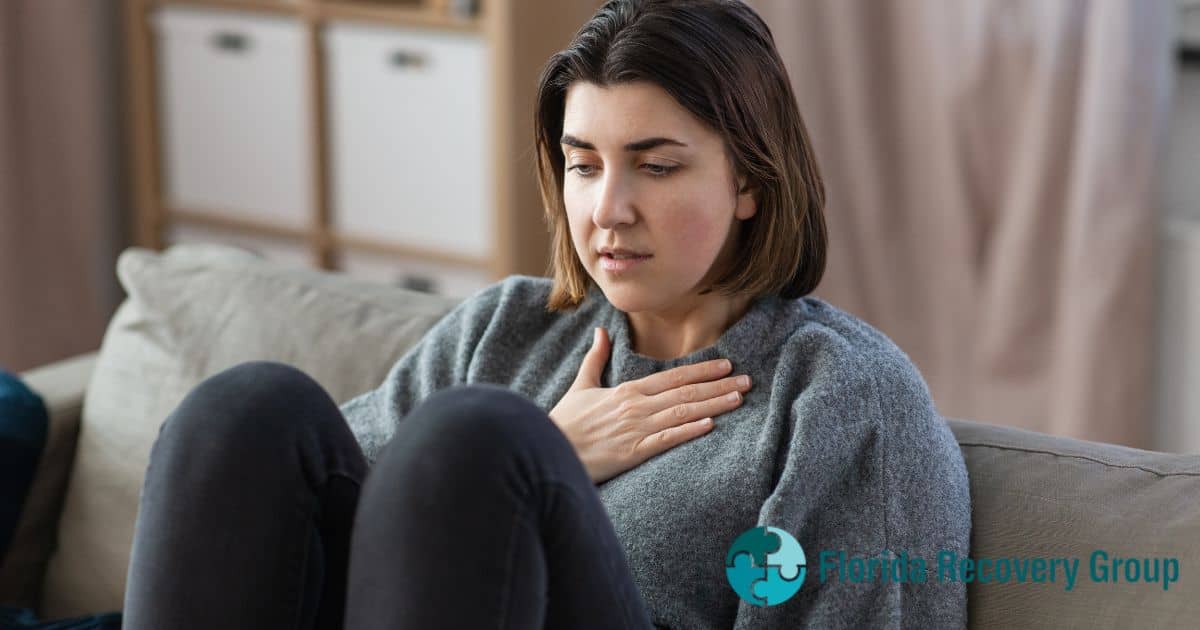
20 Jan Panic Disorder: Signs, Symptoms, and Treatment
According to the Anxiety and Depression Association of America (ADAA), anxiety disorders are the most common mental health conditions, affecting 40 million adults every year.[1]
There are several different types of anxiety disorders and each one of them can make it difficult to function properly in daily life. Dealing with daily anxiety can become debilitating, causing many people to avoid social situations, resort to self-medication, and experience difficulty completing responsibilities.
While generalized anxiety disorder is the most common, another condition known as a panic disorder can wreak havoc on your life without professional treatment. According to the ADAA, panic disorder affects 6 million adults and women are twice as likely to suffer from the condition than men.[1]
What is Panic Disorder?
Panic disorder is a mental health condition that is characterized by sudden and unexplained panic attacks. The National Institutes of Health (NIH) describes these panic attacks as, “a sudden wave of fear or discomfort or a sense of losing control even when there is no clear danger or trigger.”[2]
It is important to note that you can experience panic attacks without having panic disorder, as other anxiety conditions cause this symptom.
Oftentimes, people with this condition drastically change their habits and overall lives in an attempt to avoid situations that cause them to experience panic attacks. People may give up activities and social events that they love out of fear of experiencing another panic attack. If you have a panic disorder, you could experience anywhere from several panic attacks a day to only a few times a year.
Signs and Symptoms of Panic Disorder
Panic attacks can occur when you have other forms of anxiety disorders. However, if you experience four or more panic attacks and constantly worry that you will suffer from another, you may have panic disorder.
Symptoms of a panic attack may include:
- Pounding heart
- Sweating
- Trembling or shaking
- Shortness of breath
- Feeling like you are choking
- Nausea or stomach pain
- Dizziness or lightheadedness
- Feeling unreal or disconnected from oneself
- Fear of losing control
- Fear of “going crazy” or dying
- Numbness
- Chills or hot flashes
- Chest pain and other symptoms that mimic a heart attack
Experiencing frequent panic attacks can be extremely unsettling and scary. Sometimes panic attacks only last a few minutes, while others can last up to an hour. If you or a loved one deal with these symptoms regularly, you may be suffering from panic disorder.
How is Panic Disorder Treated?
Mental health treatment can provide individuals with relief from their panic attacks. Dealing with these symptoms regularly can take a significant toll on your quality of life, often leading people to self-medicate with drugs or alcohol. Unfortunately, this only leads to worsened symptoms over time, making it vital that you attend a mental health treatment program to address your condition.
Cognitive Behavioral Therapy
Panic disorder is typically treated through a form of psychotherapy known as cognitive behavioral therapy (CBT). This type of therapy will help you alter your patterns of thought, behavior, and emotions that happen before, during, or after your panic attacks. Once you learn to react differently to the physical sensations of anxiety and fear during a panic attack, they will become less frequent and intense.
Exposure therapy might be used in combination with CBT to help you confront your fears associated with panic disorder. The overall goal is to allow you to begin engaging in the activities you once enjoyed previously.
Medications
Panic disorder is often treated with medications to help you cope with your symptoms while you attend therapy. The most commonly used medications include:[2]
- Antidepressants, such as selective serotonin reuptake inhibitors (SSRIs) and serotonin-norepinephrine reuptake inhibitors (SNRIs)
- Beta-blockers
- Anti-anxiety medications, such as benzodiazepines
If you are suffering from a co-occurring substance use disorder, your doctor will prescribe non-habit-forming medications like SSRIs or beta blockers. They will avoid prescribing benzodiazepines because they have a potential for abuse and addiction. The overall goal of medication is to provide you with immediate symptom relief while you work on a more long-term solution in therapy.
Find Treatment for Panic Disorder Today
If you or a loved one suffer from frequent and unexplained panic attacks, you could be dealing with panic disorder. Panic disorder is a serious mental health condition that can significantly impact your ability to function in your daily life. The best way to address this anxiety disorder is to attend a mental health rehab program.
Florida Recovery Group is a top-rated mental health treatment program that specializes in the treatment of anxiety disorders. If you or a loved one suffer from panic disorder, we can provide you with the support and tools necessary to maintain long-term recovery.
Contact us today to learn more about our anxiety disorder treatment programs.
References:





